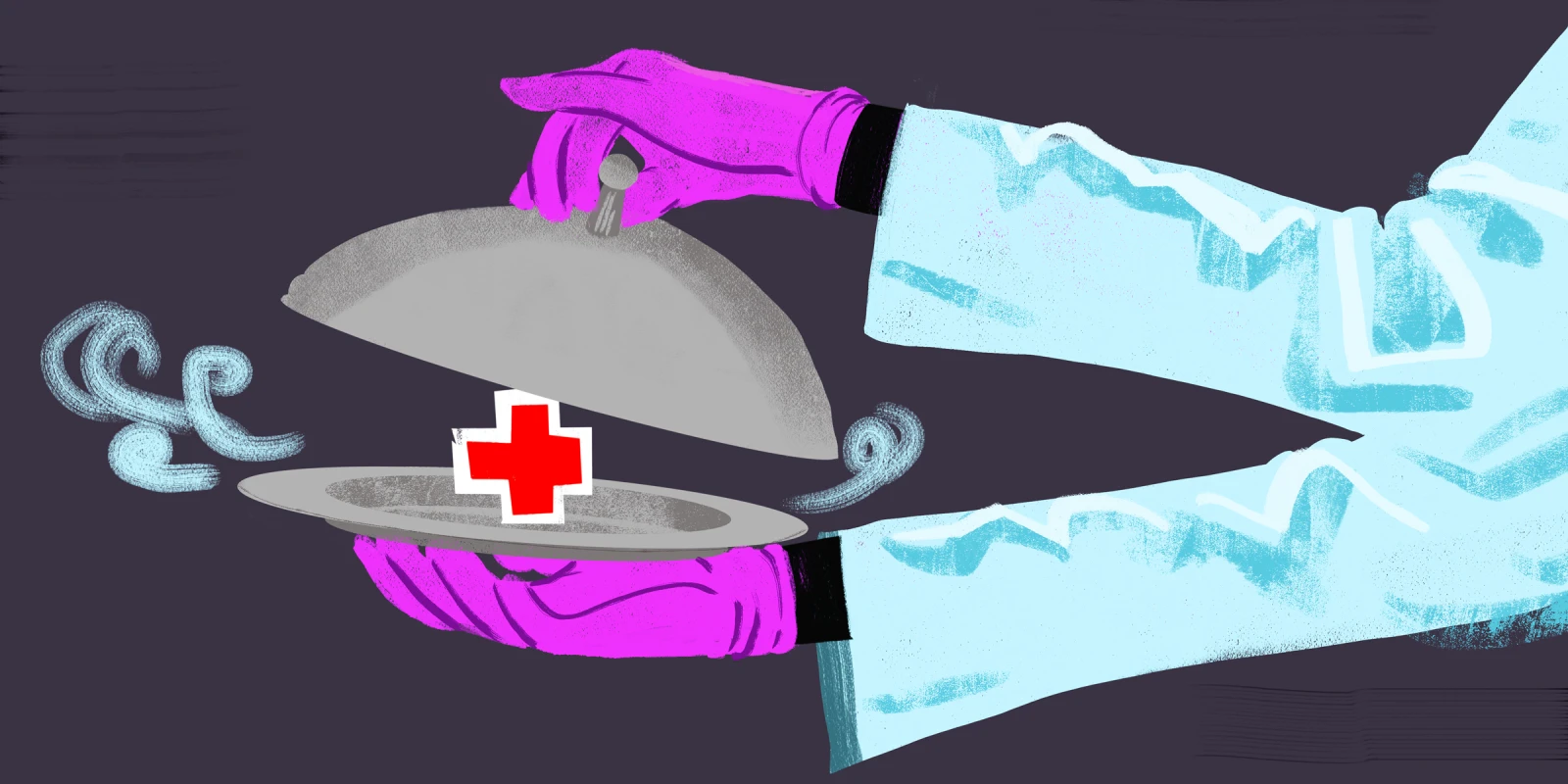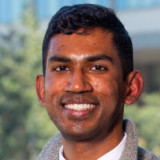Mr. K grits his teeth and exasperatingly says, “I don’t understand why I keep getting these kidney stones. First, the doctors tell me eat less dairy and more leafy greens. Now they tell me, eat more dairy and fewer leafy greens. I don’t eat fast food. I cook my food in the traditional Vietnamese way.” This conversation plays out at each of our visits, and I struggle to offer him an explanation that satisfies him. Masking and social distancing have socially isolated him. Financial insecurity and transportation insecurity constrain his food choices. My attempts to refer him to meet with a nutritionist have come to no avail; his insurance does not cover such counseling. I muddle through our appointment but share his frustration.
More than 50% of American adults have at least one chronic condition. Maintaining a healthful diet and engaging moderate intensity exercise are often touted as methods to both mitigate development of and reduce complications from chronic diseases like hypertension, diabetes, and heart disease, and yet, the aphorism “an apple a day keeps the doctor away” is easier said than done. The challenges of promoting healthy diet go beyond the inadequacy of nutrition-focused education provided to students at U.S. medical schools.
In both primary care clinic and on the inpatient cardiology service, I am often asked, “How can I prevent another heart attack? Are eggs truly bad for me?” There are few clear-cut answers in medicine; nutrition science is no different. It seems that every week, conventional wisdom about the "ideal" diet seems to change, fostering confusion. Take for instance the debate around dietary fat. The PURE cohort study concluded that high carbohydrate intake and not high fat intake is linked with increased total mortality. The America Heart Association, however, continues to tout the connection between saturated fat intake and coronary heart disease.
The problems with nutritional studies are numerous – they are often either small, multifaceted randomized controlled trials that are underpowered and have limited generalizability due to participant composition or larger cohort studies that run afoul with recall, social desirability, or measurement bias or unmeasured confounding. There’s also the issue of publication bias and journals’ and news media’s penchant for sensationalizing findings from unreproducible studies (I am skeptical that nuts significantly reduce recurrence and mortality among those with advanced colon cancer). Throw in the conflicts of interest when food and agriculture companies fund studies and the academic dishonesty of a prominent nutrition behavioral researcher, and you have a potent potion that would leave anyone scratching their head and skeptical of nutrition advice.
The challenge with nutrition is that our lives do not occur in a vacuum. Health outcomes arise from a complex interplay between genetic predisposition and environmental influence (of which diet is one component). As with the question about eggs, whether any one food is "good or bad" is the wrong question because, quite often, the answer is, “It depends.” As with Mr. K and other individuals for whom I have tried to offer nutritional advice, that answer is dissatisfying. We often seek quick fixes to our health woes in the form of fad diets. Not immune to their allure myself, I recently tried intermittent fasting for six weeks to shed weight gained while mindlessly munching on night shifts. The results were underwhelming. The fact that a recent study suggests that intermittent fasting is no better than calorie restriction led me to abandon the experiment.
Even if one-size-fits-all dietary guidance existed, doling it out would still fail to recognize the practical challenges that individuals face when the rubber meets the road of life itself. In graduate school for medical anthropology, our discussions frequently interrogated the interplay between structure and agency. As a resident physician, I know I should be eating more healthfully, exercising more frequently, and sleeping more, but “right knowledge” does not beget “right action.” The economic downturn that accompanied the COVID-19 pandemic has exacerbated food insecurity. Rising inflation threatens to compound the crisis. Individuals on a fixed income like Mr. K may not have the luxury of being selective in what they eat when calorie consumption itself is at a premium. Furthermore, decisions around food may not solely affect the individual when food is shared and collectively consumed. Given the division of labor within many American homes, the “chef” may not be able to unilaterally choose brown rice over white rice when the preferences of others must be accounted for, as an older Vietnamese patient of mine made clear.
Finally, individual tastes are often culturally informed. For Mr. K, dairy was neither something he enjoyed nor something that he commonly encountered in Vietnamese cuisine. Asking or encouraging individuals to substantially modify their food choices may spark stress and resistance. When working with older Haitian adults, many of whom were experiencing diabetes and hypertension, I came to recognize that blanket statements about reducing salt intake were unhelpful. The lack of refrigeration in houses in Haiti necessitated the preservation of meat with salt, creating lasting preferences for saltier foods even after immigrating to America. I learned from the physician with whom I was working that offering alternatives (i.e., replacing salt with other spices) and then demonstrating through cooking classes that these substitutes could be equally appetizing, led to far more durable behavior change. Tasting is, after all, believing.
I am not advocating for the abandonment of nutritional counseling. Far from it. Dietary patterns have consistently been shown to affect incidence and control of chronic conditions, and we should not rely solely on medications at the exclusion of lifestyle change in managing these conditions. What I am proposing is that we focus more on how we counsel changes than what counsel we offer.
First, drawing upon the transtheoretical model of behavioral change, we should approach these conversations with curiosity rather than prescription. Seeking to understand not only what our patients are eating but how they access food and in what social contexts they are eating can help to frame the discussion and identify opportunities for change.
Second, change does not happen overnight. Help patients identify a concrete change (e.g., sparkling water instead of soda at lunch) and a timeline by which they hope to accomplish the change. Elicit barriers to success and assess the patients’ confidence in implementing the change, then follow-up.
Third, eschew the urge to offer absolutes, since what each patient needs nutritionally will vary. When asked about eggs, I often encourage moderation rather than issue blanket judgments on the appropriateness of consuming eggs.
Fourth, consider ways to improve access to fresh fruits and vegetables in your practice setting. The clinic at which I have my resident practice has a food pantry. Not only does this resource benefit patients in terms of overcoming food insecurity, it also reinforces the notion that food is medicine.
Fifth, identify resources to continue to add to your own knowledge base. I particularly like Examine, a clearinghouse of nutrition information. While my initial conversations with Mr. K were fraught, I have come to appreciate that nutritional counseling is a process — food is a long-term treatment, not a cure.
How do you approach talking about food with your patients? Share in the comments.
Dr. Anand Habib is a third-year internal medicine resident at University of California, San Francisco. Originally from Houston, Dr. Habib completed his undergraduate work with honors at Stanford, worked as a Global Health Fellow at a clinic in Haiti's central plateau, finished a masters degree with distinction in Medical Anthropology at Oxford University as a Rhodes Scholar, and earned a medical degree from Harvard Medical School. He has previously studied the use of therapies for hematologic malignancies and oncologists' feelings of prognostic uncertainty in advanced lung cancer and is currently pursuing interests at the nexus of ethics, health policy, and distributive justice. He is a 2021–2022 Doximity Op-Med Fellow.
All names and identifying information have been modified to protect patient privacy.
Illustration by Jennifer Bogartz







